Corpus Christi Blog

Lent with St. Francis — Part 2: Humility and Obedience
02-25-2024Weekly ReflectionJen Arnold, M.A. in Theology and CatecheticsLast week, I discussed how St. Francis lived an austere life by seeking ways to practice self-control and detachment from physical and worldly comforts. This week, as we continue our Lenten journey with St. Francis according to St. Bonaventure, we will examine two more virtues in which the great saint excelled.
Chapter Six: Of His Humility and Obedience, and How the Divine Majesty Granted All His Prayers
The Catholic Encyclopedia defines humility as: “A quality by which a person considering his own defects has a lowly opinion of himself and willingly submits himself to God and to others for God's sake.” Modern culture argues against having a low opinion of oneself. It encourages building one's self-esteem by recognizing one's self-worth and accepting the praise that goes with a job well done in whatever situation it occurs. This position lacks the Christian understanding that humility requires extreme self-awareness, recognizing our sinfulness, and, therefore, unworthiness before God. Jesus promises a reward for authentic humility, saying, “For everyone who exalts himself will be humbled, and he who humbles himself will be exalted” (Lk 14:11). So, humility is something for which we must strive because it is required for entrance into the kingdom of heaven.
READ MORE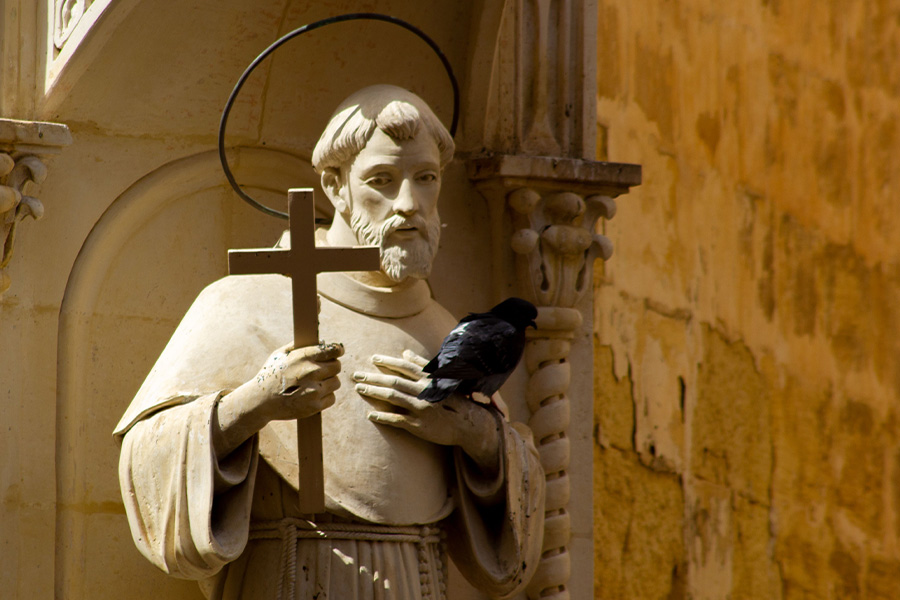
Lent with St. Francis, Part 1: Austerity
02-18-2024Weekly ReflectionJen Arnold, M.A. in Theology and CatecheticsOnce again, we find ourselves in the liturgical season of Lent. This is a time to focus on our growth in holiness and virtue through prayer, penance, and almsgiving as we anticipate the suffering Jesus endured to reconcile us to the Father. As the inspiration for this year's Lenten reflection series, I am using The Life of St. Francis of Assisi, by St. Bonaventure.
St. Francis (1181-1226) was a wealthy businessman who, by his own admission, led a sinful life and desired earthly glory above all else. His conversion was slow and occurred through a series of events, but eventually, he fully accepted God’s will for his life. He embraced poverty, became an excellent preacher, was ordained a deacon, and founded the Franciscan order – none of which he originally set out to do.
READ MORE
Spousal Love
02-11-2024Weekly ReflectionJen Arnold, M.A. in Theology and CatecheticsSt. Valentine's Day is this week, and while it may be fun to celebrate with hearts, gifts, and romantic dinners, it is also an excellent time to reflect on Christian love in the context of marriage.
The Sacrament of Marriage is a beautiful gift from God intended to provide us lifelong companionship and access to the grace that flows from the sacramental bond. However, marriage also comes with a considerable amount of responsibility. St. Paul says, “Husbands, love your wives as Christ loves the church…” (Eph 5:25). Paul speaks directly to husbands here because it is embedded in a larger context that emphasizes the differences between men and women. Still, the call for spouses to love one another is universal.
READ MORE
Natural Law
02-04-2024Weekly ReflectionJen Arnold, M.A. in Theology and CatecheticsWe live in a world plagued by moral relativism, where even the word “morality” can be controversial. As Catholics, we are blessed to have guides in the Magisterium and Scripture for properly forming our consciences, knowing right from wrong, and living a moral life, along with gentle and loving remedies for when we get off track. However, the world at large rarely adheres to the Church’s guidance on moral issues, claiming we follow arbitrary rules imposed by a distant, non-existent, or irrelevant God. Likewise, often Church and biblical teaching is considered antiquated and even unapplicable to an ever-evolving society and set of circumstances. Hence, we see growing confusion and disagreement over right and wrong.
READ MORE
Redemptive Suffering
01-28-2024Weekly ReflectionJen Arnold, M.A. in Theology and CatecheticsSuffering is an unavoidable part of the human condition. We see suffering all around us and experience it personally across the spectrum, from catastrophes to minor daily annoyances. Suffering can manifest bodily, mentally, emotionally, and spiritually, affecting all aspects of our lives. Our modern world tells us to avoid suffering at all costs and to instead seek comfort by any means necessary, such as taking a pill to alleviate pain, seeking divorce when marriage becomes difficult, or giving up in a situation that does not provide immediate satisfaction. The world sees suffering as a senseless evil to be avoided if possible or at least something completely meaningless. However, as Catholics, we know that personal suffering has immense value and is, in fact, redemptive and salvific for ourselves and others. Let's now explore how the great mystery of redemptive suffering works and how we might better allow our suffering to serve the good of ourselves and others.
READ MORE
Lectio Divina
01-21-2024Weekly ReflectionJen Arnold, M.A. in Theology and CatecheticsThis week, we will explore an ancient form of prayer called Lectio Divina, or divine reading, which facilitates a dialogue with God in which a person can hear what God is saying to them through scripture. We know that all of scripture, while written with human hands, is the inspired Word of God in which he not only speaks to all of humanity, but also to each one of us on a personal level.
READ MORE
Liturgy of the Hours
01-14-2024Weekly ReflectionJen Arnold, M.A. in Theology and CatecheticsAs we are still at the beginning of a new year, both secular and liturgical, I will spend this week and next highlighting two specific types of prayer to encourage everyone to deepen their prayer lives. This week, I will explain the Liturgy of the Hours.
The Liturgy of the Hours — also known as the Divine Office or Breviary — is a public liturgical form of prayer that has been practiced throughout the centuries, dating back to the Desert Fathers in the 5th century. The Liturgy is designed to sanctify the entire day. The Church continually offers praise and thanksgiving to God by saying prescribed prayers at specific hours of the day — invitatory psalm (dawn or 3 am), office of readings (anytime), lauds (6 am), terce (9 am), sext (noon), none (3 pm), vespers (6 pm), and compline (9 pm).
READ MORE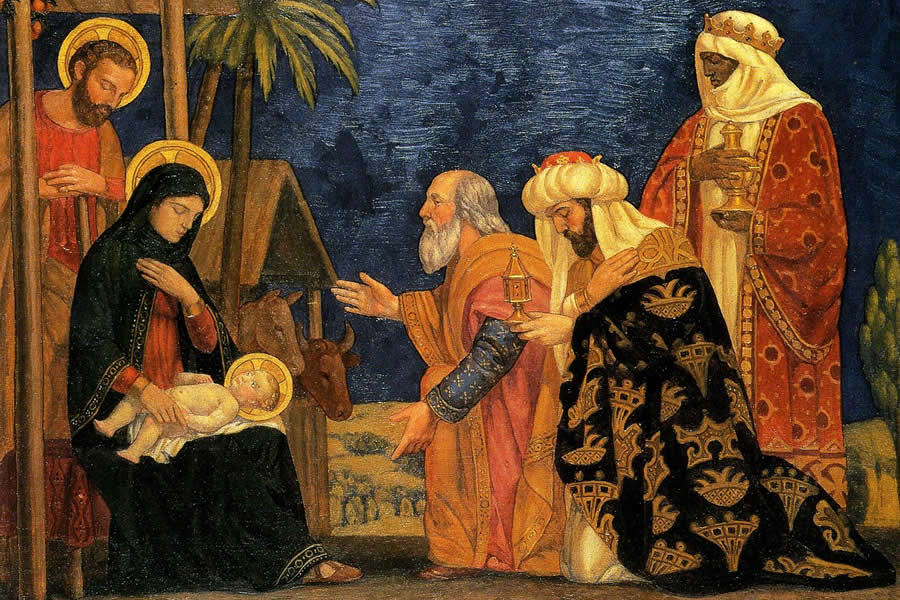
A Reflection on St. John Vianney’s Epiphany Homily
01-07-2024Weekly ReflectionJen Arnold, M.A. in Theology and Catechetics“Where is the newborn king of the Jews? We saw his star at its rising and have come to do him homage.” -Matthew 2:2
Happy feast of the Epiphany!
The word epiphany comes from the Greek epiphaneia, which means "appearance" or "manifestation." Epiphany celebrates the manifestation of Jesus Christ to the world, represented by the magi, who traveled from distant lands to pay homage to the newborn king.
READ MORE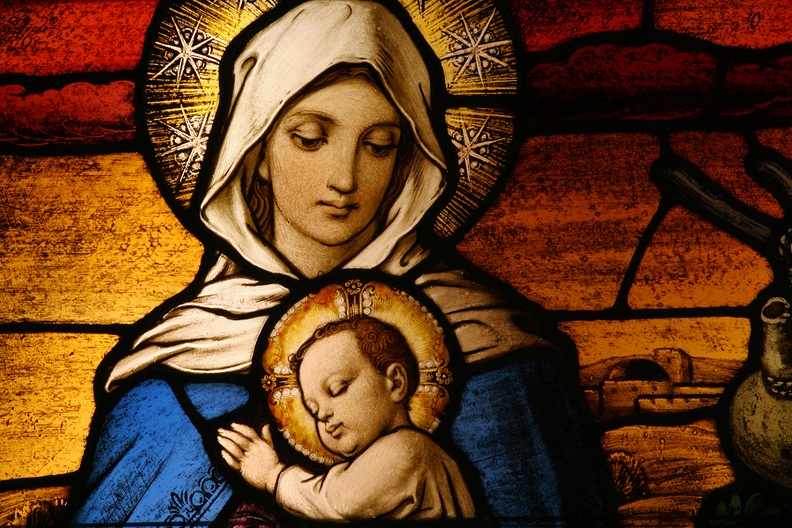
New Year's Feasts
12-31-2023Weekly ReflectionJen Arnold, M.A. in Theology and CatecheticsThis week’s article is uniquely positioned on the liturgical and secular calendars. Today is the Feast of the Holy Family, while tomorrow we celebrate the Solemnity of Mary, Mother of God. Tomorrow is also the Feast of the Circumcision — the eighth day after Jesus’ birth — marked with variable emphasis throughout Church history and other parts of the world. Additionally, tomorrow is New Year’s Day and the World Day of Peace, as declared by Pope St. Paul VI in 1968.
READ MORE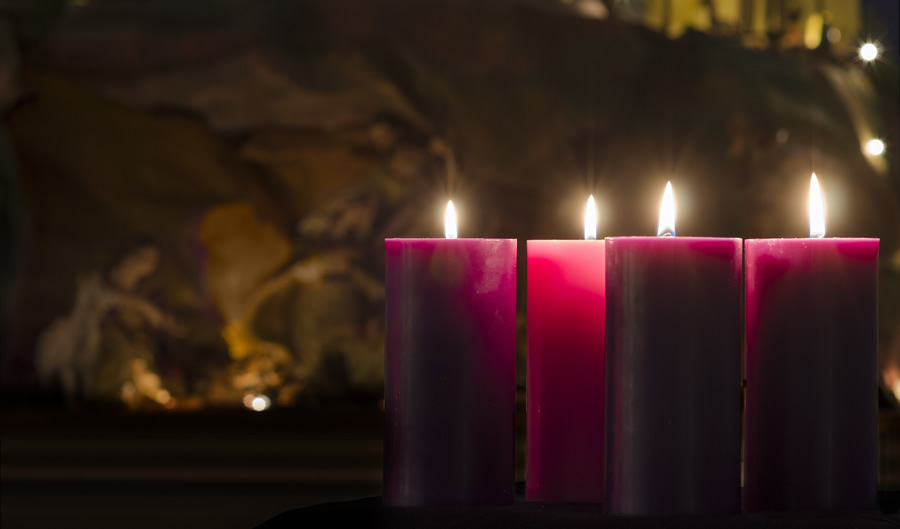
How the Beatitudes Help Us Experience Heaven's Happiness on Earth — Part 4
12-20-2023Weekly ReflectionJen Arnold, M.A. in Theology and CatecheticsWe have now reached the fourth Sunday of Advent, as well as Christmas Eve. We will finish our series on the Beatitudes with a reflection on the final two, and thus enter the Christmas season with a renewed desire to live truly happy lives by following the formula Jesus gave us.
“Blessed are the peacemakers, for they shall be called sons of God.” -Matthew 5:9
Before we understand peace, we should clarify what it is not. Peace is not merely the absence of conflict. Today's world tells us that we ought to be quiet when we disagree, "live and let live,” or “go along to get along.” To outwardly reject sin as such is considered judgmental, combative, and agitating. However, when we stay silent for the sake of not rocking the boat, is that authentic peace? People or situations can have no outward signs of fighting or conflict while still experiencing strife and tension under the surface.
READ MORE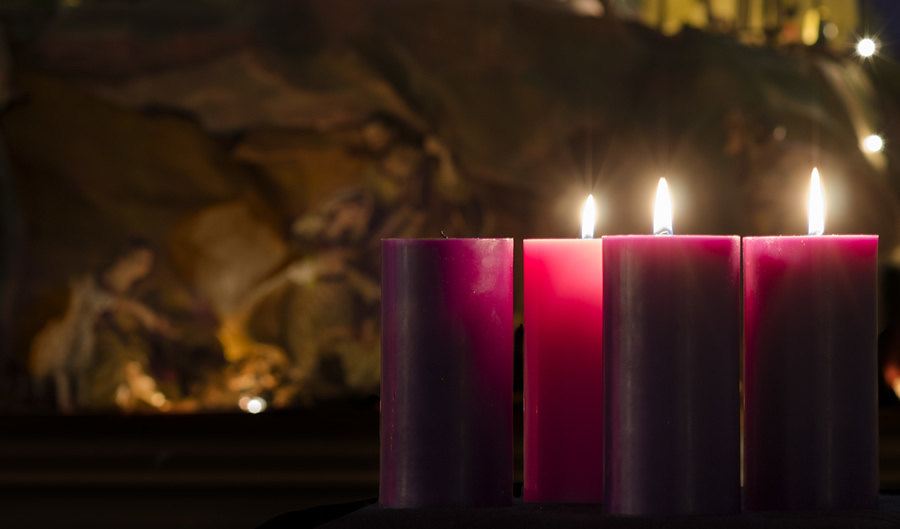
How the Beatitudes Help Us Experience Heaven's Happiness on Earth — Part 3
12-17-2023Weekly ReflectionJen Arnold, M.A. in Theology and CatecheticsWe have now reached the halfway point of Advent and thus, of our examination of the Beatitudes as well. I hope that since the Beatitudes are a guide to happiness, that these reflections are adding to your Advent in a way that makes your heart receptive to the coming of Jesus Christ at Christmas. Now, let's look at the fifth and sixth beatitudes.
“Blessed are the merciful, for they shall receive mercy.” – Matthew 5:7
Last week, we addressed the beatitude that promised satisfaction for those who seek justice and righteousness, which in and of themselves are good things when rightly ordered. However, while we have justice on one side of the coin, we must balance it with mercy on the other, because God himself is both justice and mercy. If justice existed without mercy, none of us would be safe from getting what we truly deserve for our sins. If our sense of righteousness against our enemies is to be satisfied, then so will theirs. This reality ought to tug at our heartstrings and stir up compassion and mercy in us so that we can see the suffering of others, bodily or spiritual, and desire that they be alleviated from their pain.
READ MORE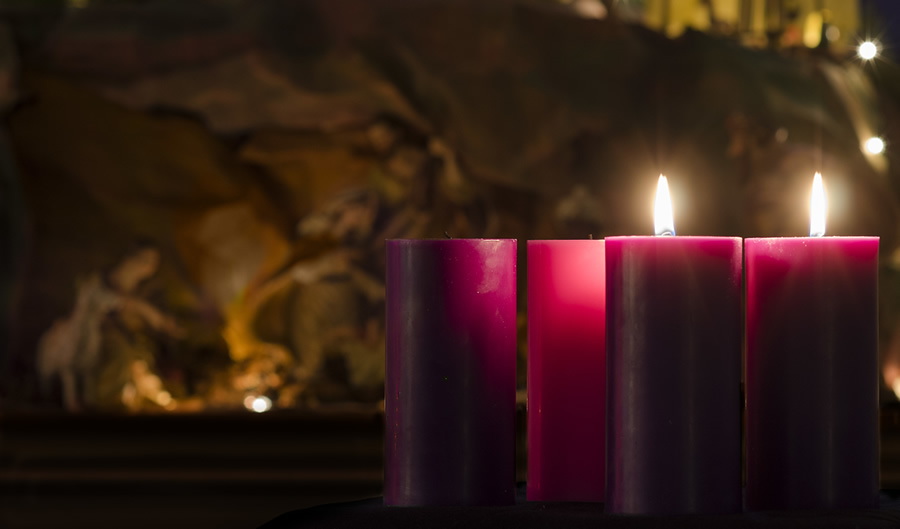
How the Beatitudes Help Us Experience Heaven's Happiness on Earth — Part 2
12-10-2023Weekly ReflectionJen Arnold, M.A. in Theology and CatecheticsAs we find ourselves now on the Second Sunday of Advent, we will explore how the second two beatitudes can help our hearts become more receptive to the coming of Jesus at Christmas.
“Blessed are the meek, for they shall inherit the earth.” – Matthew 5:5
Meekness is a disposition that restrains our desire to overcome obstacles blocking our access to pleasure. For example, we may use our anger as motivation to defeat what is in our way. A sense of power or a competitive nature also inclines us to go after what we want or to keep someone else from having it. While these human tendencies are normal and not sinful in and of themselves (life demands that we must surmount certain difficulties to achieve inherently good things) they can quickly be taken too far when left unchecked.
READ MORE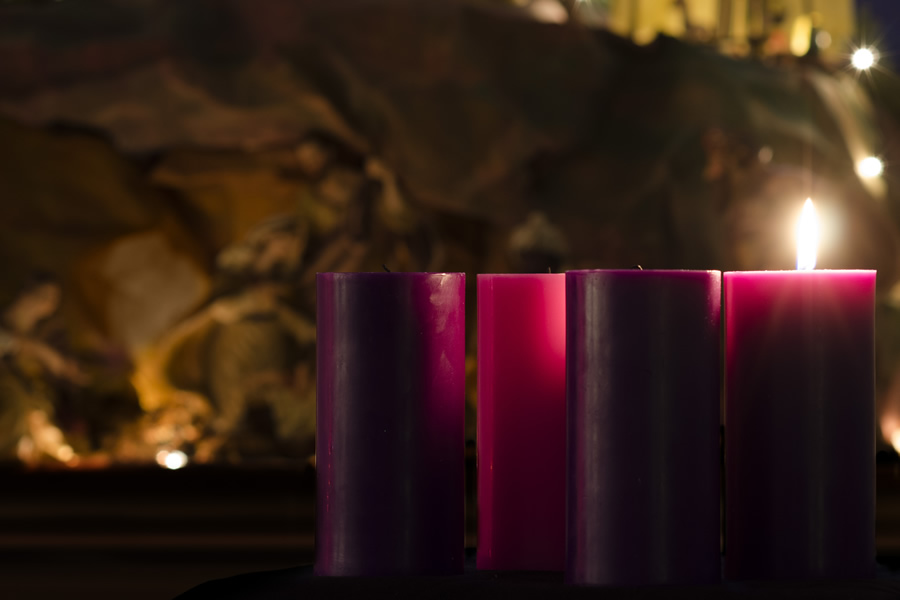
How the Beatitudes Help Us Experience Heaven's Happiness on Earth — Part 1
12-03-2023Weekly ReflectionJen Arnold, M.A. in Theology and CatecheticsAdvent begins this week, and we will spend time preparing our hearts for the coming of Jesus at Christmas. As such, I will provide a four-week series reflecting on how the beatitudes help us to become more childlike and receptive to the coming of the Word of God as a child himself. These reflections draw inspiration from Heart of the Gospel: How the Beatitudes Show Us God’s Plan for Happiness, by Sebastian Walshe, O. Praem.
READ MORE